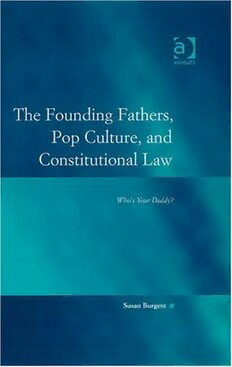
The Founding Fathers, Pop Culture, and Constitutional Law (Law, Justice and Power) PDF
154 Pages·2008·0.557 MB·English
Most books are stored in the elastic cloud where traffic is expensive. For this reason, we have a limit on daily download.
Preview The Founding Fathers, Pop Culture, and Constitutional Law (Law, Justice and Power)
Description:
Applying innovative interpretive strategies drawn from cultural studies, this book considers the perennial question of law and politics: what role do the founding fathers play in legitimizing contemporary judicial review? Rather than promulgating further theories that attempt to legitimize either judicial activism or restraint, this work uses narrative analysis, popular culture, parody, and queer theory to better understand and to reconstitute the traditional relationship between fatherhood and judicial review. Unlike traditional, top-down public law analyses that focus on elite decision making by courts, legislatures, or executives, this volume explores the representation of law and legitimacy in various sites of popular culture. To this end, soap operas, romance novels, tabloid newspapers, reality television, and coming out narratives provide alternative ways to understand the relationship between paternal power and law from the bottom upIn this manner, constitutional discourse can begin to be transformed from a dreary parsing of scholarly and juristic argot into a vibrant discussion with points of access and understanding for all.
See more
The list of books you might like
Most books are stored in the elastic cloud where traffic is expensive. For this reason, we have a limit on daily download.
